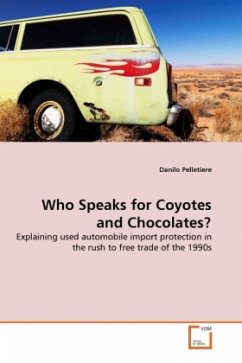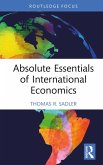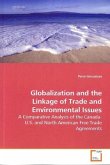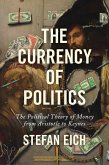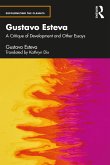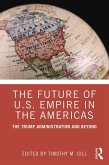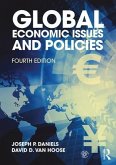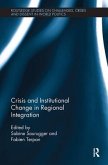Why in the rush to free trade of the 1990s did used automobiles get left behind? After a decade of unprecedented liberalization, and a sizable literature on the theoretical benefits of this trade, a majority of developing countries have some sort of additional trade restriction on the import of a used automobile. Pelletiere uses a survey of policies and anecdotes to reveal the likely factors influencing the presence and severity of the discrimination against used automobiles in specific countries. These are tested with a gravity analysis of the international used automobile trade and a formal model of the political economy of these policies. At the heart of the book, however, is a case study of the evolution of Mexico's policy and politics toward used automobile imports, where illegal used automobiles are called "chocolates" and the fixers who get them into the country are called "coyotes".
Bitte wählen Sie Ihr Anliegen aus.
Rechnungen
Retourenschein anfordern
Bestellstatus
Storno

